
views
- Figure out why your car was towed and where it was taken. This way, you can determine how to get your towing and storage fees waived.
- Dispute the tow claim and file a complaint with your city. Use photo evidence to prove there were missing signs or extenuating circumstances.
- Research pro bono legal help or local community programs to help waive or pay your towing fees.
Locate your car and clarify why it was towed.

Call your local parking authority to find your car and get more information. Provide your license plate number and your car’s make, model, and color, then ask why your car was towed and who towed it. The parking authority should have answers, although their database may take a few hours to update. Call your city’s non-emergency police number (like 311) for more information if the parking authority can’t answer all of your questions. Ask business or apartment complex owners who they called to tow your vehicle if you were parked on their property. When in doubt, ask people in the area or passersby if they saw which towing company moved your car. Don’t call 911 to ask about a towed car. It’s considered a waste of emergency resources and may be illegal (look for your jurisdiction's Non-emergency police number instead).
Review the violation for accuracy.
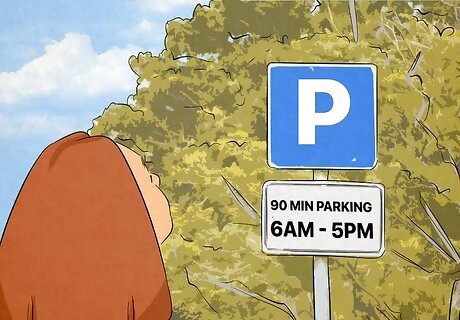
Check whether your car was rightly or wrongly towed. If you were towed for illegal parking, scan the area for signage—if you don’t see signs with parking information, you can contest the charges. Take photos of the scene as proof to back up your claim to police, city officials, and the towing company. If you were towed from an apartment complex or business, file a complaint with the owners or managers and ask for the reason you were towed.
Look up the towing laws in your city or state.
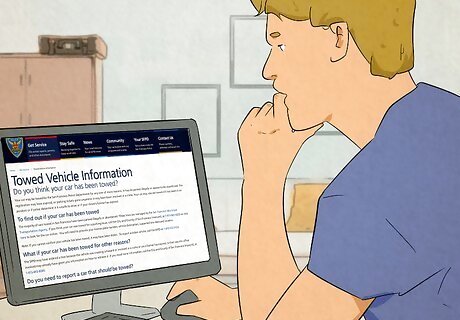
Research whether the towing company is predatory or compliant. Some municipalities oversee car towing to keep tow yards from engaging in abusive operations. Search for your city’s parking and towing laws online—make sure you get information from an official website ending in “.gov” or “.org.” If you can prove you were wrongfully or illegally towed, you likely won’t have to pay to retrieve your car. If the tow company is proven guilty of illegal or exploitative behavior, they might face a large fine and you could receive additional compensation.
Inform the police if you suspect unlawful towing.
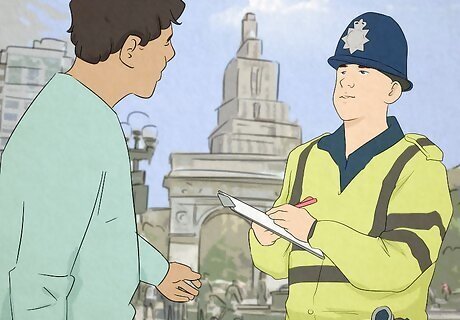
Contact local law enforcement to order the return of your vehicle. Be certain you’ve done nothing wrong—if you’re guilty of violating a parking law or regulation, the police can’t order the tow yard to return your car. Typically, the most police can do is request that the tow yard reconsider or act as a go-between for you and the towing company. Remember that tow yards and companies are businesses that can work with law enforcement as well.
File a complaint to dispute the claim.
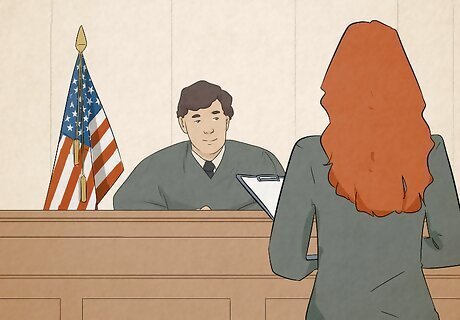
Follow your city’s procedure for filing complaints against towing. If your complaint is valid, you’ll potentially have your towing and impound fees waived. Dispute any tickets that led to your car being towed, too. Show they were issued in error with photos or other evidence. If you prove you were forced to violate a parking regulation or other law due to extenuating or emergency circumstances, a court may waive your fees. File your claim or request a hearing as soon as possible. There is typically a limited number of days after the incident when your complaint will be valid. Some cities require you to request a hearing in-person and/or in writing. Check your city’s official website ending in “.gov” or “.org.”
Seek out free legal assistance.

Free legal services will assist you if the tow company is unfair. Typically, pro bono legal resources are reserved for low-income individuals or families that don’t have the money or assets to get their car back. Use resources like LawHelp.org to find pro bono legal opportunities in your state. Free legal services will likely not help if your car was impounded due to criminal activity.
Ask about payment plans.

Some tow companies offer financing to help retrieve impounded cars. Call the lot and explain your situation—they may recommend or offer you a loan, or suggest a payment plan where you pay the tow and storage fees in installments. Your options depend on the individual lot’s policies. The interest rates of tow yard payment plans are usually high. However, this could be a good option if you need your car back quickly and don’t have the money up front.
Take advantage of community action agencies.
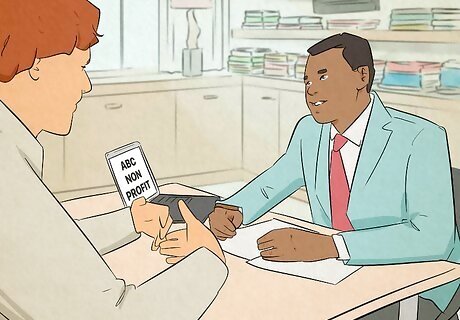
Local nonprofits, charities, or churches might assist with fees. Explain your situation to one of these programs—if you need your vehicle for work and are struggling financially, you may receive a small grant or low-interest loan to help you get your car back. Provide proof of employment and income plus a plan to repay the money when you apply for aid through a nonprofit organization or similar program. These organizations might also locate low-income car loans, offer help registering your vehicle, or assist with paying off outstanding tickets. Some organizations, like churches or charities, may ask for volunteer hours or another commitment in exchange for financial assistance.
Borrow or crowdfund the money.
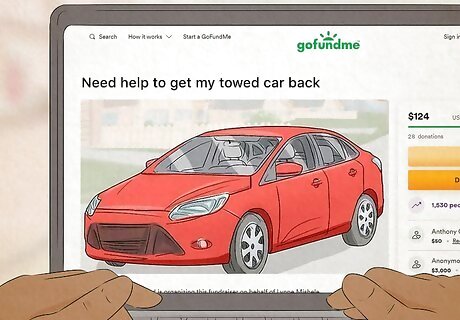
Lean on your friends, family, or social networks for financial support. Explain how the storage fees add up every day and fast action is necessary to lower the cost of getting your car back. To reach more people, set up an online crowdfunding effort through a free site like GoFundMe. If you plan on repaying friends or family, secure a loan as soon as possible to reduce the amount you’ll have to pay back. If friends and family can’t help, ask them to share your crowdfunding link to reach as many people as possible.
Get a payday loan from the bank.

Use the loan to get your car back if you’re currently strapped for cash. You’ll ultimately still end up paying to retrieve your car, but a loan may be worth it since the storage fees add up every day. Compare the cost of the loan to the cost of impoundment to decide whether getting a payday loan is the best move. Payday loans are cash advance loans that typically have high interest rates and fees. Use a payday loan as a short-term fix if your car impoundment is an emergency.
Take out a title loan on your car.
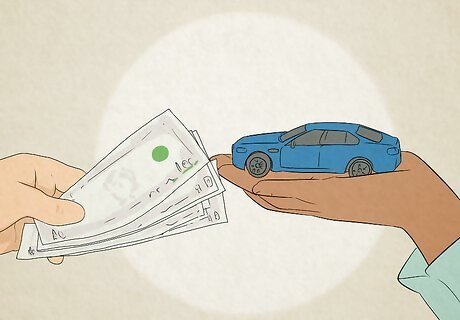
Retrieve your car with the title loan money, then repay the loan later. In this arrangement, the title to your car is the collateral. Repay the loan on time to get the title back, minimize interest charges, and prevent the lender from selling your car to get their money back. You may have to swap the hard copy of your title to get the loan.














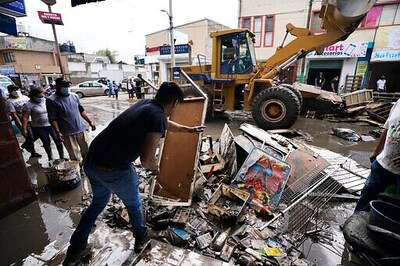



Comments
0 comment